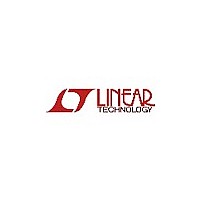LTC3731 Linear Technology, LTC3731 Datasheet - Page 16

LTC3731
Manufacturer Part Number
LTC3731
Description
Synchronous Buck Switching Regulator Controller
Manufacturer
Linear Technology
Datasheet
1.LTC3731.pdf
(32 pages)
Available stocks
Company
Part Number
Manufacturer
Quantity
Price
Part Number:
LTC3731CG
Manufacturer:
LINEAR/凌特
Quantity:
20 000
Part Number:
LTC3731CG#PBF
Manufacturer:
LINEAR/凌特
Quantity:
20 000
Part Number:
LTC3731CG-AE
Manufacturer:
LINEAR/凌特
Quantity:
20 000
Company:
Part Number:
LTC3731CUH
Manufacturer:
Linear Technology
Quantity:
135
Company:
Part Number:
LTC3731CUH
Manufacturer:
LT
Quantity:
10 000
Part Number:
LTC3731CUH
Manufacturer:
LINEAR/凌特
Quantity:
20 000
Part Number:
LTC3731CUH#PBF
Manufacturer:
LINEAR/凌特
Quantity:
20 000
Company:
Part Number:
LTC3731HUH
Manufacturer:
LT
Quantity:
10 000
Company:
Part Number:
LTC3731HUH#PBF/C
Manufacturer:
MAX
Quantity:
753
Company:
Part Number:
LTC3731IUH
Manufacturer:
LT
Quantity:
10 000
w w w . D a t a S h e e t 4 U . c o m
APPLICATIO S I FOR ATIO
LTC3731
size or height requirements in the design. Always consult
the capacitor manufacturer if there is any question.
The Figure 6 graph shows that the peak RMS input current
is reduced linearly, inversely proportional to the number N
of stages used. It is important to note that the efficiency
loss is proportional to the input RMS current squared and
therefore a 3-stage implementation results in 90% less
power loss when compared to a single phase design.
Battery/input protection fuse resistance (if used), PC
board trace and connector resistance losses are also
reduced by the reduction of the input ripple current in a
PolyPhase system. The required amount of input capaci-
tance is further reduced by the factor, N, due to the
effective increase in the frequency of the current pulses.
Ceramic capacitors are becoming very popular for small
designs but several cautions should be observed. “X7R”,
“X5R” and “Y5V” are examples of a few of the ceramic
materials used as the dielectric layer, and these different
dielectrics have very different effect on the capacitance
value due to the voltage and temperature conditions
applied. Physically, if the capacitance value changes due
to applied voltage change, there is a concommitant piezo
effect which results in radiating sound! A load that draws
varying current at an audible rate may cause an attendant
varying input voltage on a ceramic capacitor, resulting in
an audible signal. A secondary issue relates to the energy
flowing back into a ceramic capacitor whose capacitance
value is being reduced by the increasing charge. The
voltage can increase at a considerably higher rate than the
constant current being supplied because the capacitance
value is decreasing as the voltage is increasing! Ceramic
capacitors, when properly selected and used however, can
provide the lowest overall loss due to their extremely low
ESR.
The selection of C
series resistance (ESR). Typically once the ESR require-
ment is satisfied the capacitance is adequate for filtering.
The steady-state output ripple (∆V
16
∆
V
OUT
≈
∆
I
RIPPLE
OUT
U
⎛
⎜
⎝
is driven by the required effective
ESR
U
+
8
NfC
1
OUT
W
OUT
) is determined by:
⎞
⎟
⎠
U
where f = operating frequency of each stage, N is the
number of output stages, C
∆I
highest at maximum input voltage since ∆I
with input voltage. The output ripple will be less than 50mV
at max V
and
The emergence of very low ESR capacitors in small,
surface mount packages makes very small physical imple-
mentations possible. The ability to externally compensate
the switching regulator loop using the I
much wider selection of output capacitor types. The
impedance characteristics of each capacitor type is sig-
nificantly different than an ideal capacitor and therefore
requires accurate modeling or bench evaluation during
design.
Manufacturers such as Nichicon, United Chemicon and
Sanyo should be considered for high performance through-
hole capacitors. The OS-CON semiconductor dielectric
capacitor available from Sanyo and the Panasonic SP
surface mount types have a good (ESR)(size) product.
Once the ESR requirement for C
RMS current rating generally far exceeds the I
requirement. Ceramic capacitors from AVX, Taiyo Yuden,
Murata and Tokin offer high capacitance value and very
low ESR, especially applicable for low output voltage
applications.
In surface mount applications, multiple capacitors may
have to be paralleled to meet the ESR or RMS current
handling requirements of the application. Aluminum elec-
trolytic and dry tantalum capacitors are both available in
surface mount configurations. New special polymer sur-
face mount capacitors offer very low ESR also but have
much lower capacitive density per unit volume. In the case
of tantalum, it is critical that the capacitors are surge tested
for use in switching power supplies. Several excellent
choices are the AVX TPS, AVX TPSV, the KEMET T510
series of surface-mount tantalums or the Panasonic SP
C
C
L
OUT
OUT
= ripple current in each inductor. The output ripple is
required ESR < N • R
> 1/(8Nf)(R
IN
with ∆I
L
SENSE
= 0.4I
)
OUT(MAX)
OUT
SENSE
= output capacitance and
OUT
assuming:
has been met, the
TH
pin allows a
L
RIPPLE(P-P)
increases
3731fa














